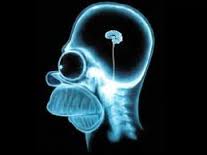
Breaking News
 Verizon to Slash 15 Percent of Its Workforce, About 15,000 Jobs
Verizon to Slash 15 Percent of Its Workforce, About 15,000 Jobs
 The SCARY SHIFT from SCARCITY to ABUNDANCE
The SCARY SHIFT from SCARCITY to ABUNDANCE
 Foreclosure surge signals housing market distress as costs spiral out of control
Foreclosure surge signals housing market distress as costs spiral out of control
 Nearly 1,000 flights canceled despite government reopening, disruptions expected for days
Nearly 1,000 flights canceled despite government reopening, disruptions expected for days
Top Tech News
 Blue Origin New Glenn 2 Next Launch and How Many Launches in 2026 and 2027
Blue Origin New Glenn 2 Next Launch and How Many Launches in 2026 and 2027
 China's thorium reactor aims to fuse power and parity
China's thorium reactor aims to fuse power and parity
 Ancient way to create penicillin, a medicine from ancient era
Ancient way to create penicillin, a medicine from ancient era
 Goodbye, Cavities? Scientists Just Found a Way to Regrow Tooth Enamel
Goodbye, Cavities? Scientists Just Found a Way to Regrow Tooth Enamel
 Scientists Say They've Figured Out How to Transcribe Your Thoughts From an MRI Scan
Scientists Say They've Figured Out How to Transcribe Your Thoughts From an MRI Scan
 SanDisk stuffed 1 TB of storage into the smallest Type-C thumb drive ever
SanDisk stuffed 1 TB of storage into the smallest Type-C thumb drive ever
 Calling Dr. Grok. Can AI Do Better than Your Primary Physician?
Calling Dr. Grok. Can AI Do Better than Your Primary Physician?
 HUGE 32kWh LiFePO4 DIY Battery w/ 628Ah Cells! 90 Minute Build
HUGE 32kWh LiFePO4 DIY Battery w/ 628Ah Cells! 90 Minute Build
 What Has Bitcoin Become 17 Years After Satoshi Nakamoto Published The Whitepaper?
What Has Bitcoin Become 17 Years After Satoshi Nakamoto Published The Whitepaper?
Klotho longevity hormone helped make mice smarter

People with more klotho in their body, tend to live longer and to retain more of their faculties—that is to stay sharp—well into old age.
Researchers injected three types of mice with a portion of the protein. They injected young mice, aged mice, and mice genetically altered to have brains similar to that which we would see in Alzheimer's or Parkinson's patients in humans.
"Within hours they showed better cognitive function," says Dubal.
Since you can't exactly administer a mouse an IQ test, they assessed brain power based on the mice's ability to navigate a series of water mazes, in an experiment that sounds on par with human a trip to Wisconsin's famed waterslide park, The Dells.
They found that mice that had daily injections and were better able to navigate the maze (as measured by the distance traveled to find a hidden platform) than their control group peers. In a classic example of work smarter, not harder, the klotho mice were just much more efficient seekers.

 Unbanked In A Connected World
Unbanked In A Connected World

